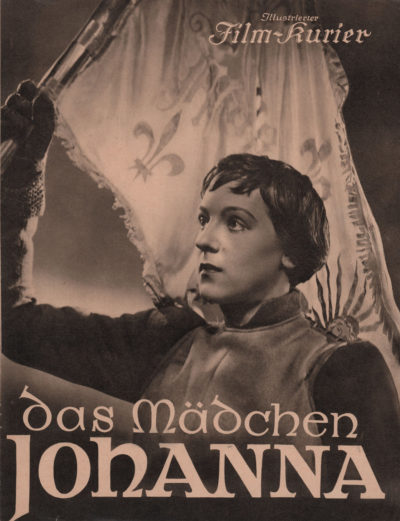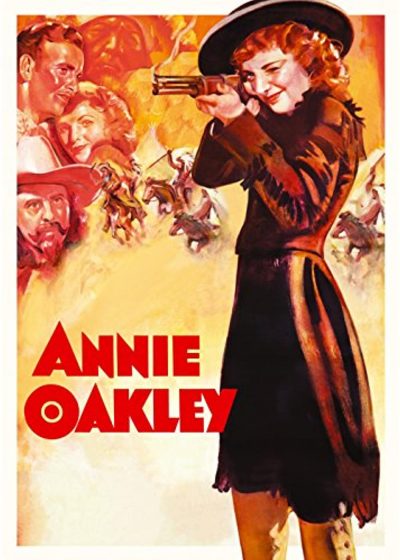★★
“It’ll be all Reich on the night.”
 It’s basically impossible to separate this from the time and place in which it was made: that being Nazi Germany, just a few years before the outbreak of World War II. The portrayal of, not only Johanna/Joan of Arc, but the rest of the participants, has to be read in this light. It certainly explains why neither the English nor the French sides exactly come over as covered in glory. From the former camp, we have Lord Talbot, who is cruel to an almost cartoonish degree. On the latter we have King Charles VII (Gründgens), who is cynical to a fault, and has no qualms at all about using Joan when convenient, then discarding her when she isn’t.
It’s basically impossible to separate this from the time and place in which it was made: that being Nazi Germany, just a few years before the outbreak of World War II. The portrayal of, not only Johanna/Joan of Arc, but the rest of the participants, has to be read in this light. It certainly explains why neither the English nor the French sides exactly come over as covered in glory. From the former camp, we have Lord Talbot, who is cruel to an almost cartoonish degree. On the latter we have King Charles VII (Gründgens), who is cynical to a fault, and has no qualms at all about using Joan when convenient, then discarding her when she isn’t.
While Johanna (Salloker) is certainly the hero here, her screen-time is surprisingly limited. She doesn’t show up until about the 25-minute mark, her appearance rescuing the King from a mob, who are about to tear him limb from limb for his decision to abandon Orleans. However, the only person who genuinely cares for her is Maillezais (Deltgen), and even he is powerless to stop her becoming a pawn, blamed for the outbreak of the Black Death, once she has outlived her usefulness to the French nobility. I was expecting this to be a parallel between Joan and Hitler, but it doesn’t quite seem that simple.
Admittedly, the film ends, 25 years after the war, with Joan’s reputation salvaged. No longer a heretic, the last lines proclaim “Joan’s memory forthwith as a memory to her who freed France from foreign rule, as a memory to the state’s most faithful servant, who had by her sacrificial death ended disastrous warfare and who gave glory and greatness to the country and peace to the people.” That sounds fairly Fuhrer-like – except for the awkward “sacrificial death” thing. It’s possible King Charles may be a better candidate as the Hitler figure, prepared to do whatever is necessary to save his country. To the latter end, he proclaims “I know the people. The dead Joan will be all-powerful. Inviolable. A thousand times stronger! And her death will engender new miracles.”
Contemporary reviewers like Graham Greene (author of The Third Man) also drew parallels between the French King ridding himself of advisers he saw as treacherous, and The Night of the Long Knives, or the burning of Joan with the burning of the Reichstag. Me, I’m here purely to review it as a movie, and as such it’s quite lacklustre and plodding, concentrating more on the political machinations behind the scene. Salloker looks the part, especially when clad in her silver suit of armour. However, she rarely gets the chance to do much: the only significant bit of acting coming when she realizes she is about to die. Matters are perhaps not helped by the confusing way both the English and French speak German, and the battle scenes are no great shakes: certainly not as good as those in Joan the Woman, two decades previously. This is largely forgotten, for all the right reasons.
Dir: Gustav Ucicky
Star: Angela Salloker, Gustaf Gründgens, Heinrich George, René Deltgen





 While not exactly an accurate retelling of the life of noted sure-shot Annie Oakley, this is breezily entertaining. Indeed, you can make a case for this being one of the earliest “girls with guns” films to come out in the talking pictures era. There’s no denying Oakley (Stanwyck) qualifies here. The first time we see her, she’d delivering a load of game birds – all shot through the head to avoid damaging the flesh – to her wholesaler. When barnstorming sharpshooter Toby Walker (Foster) blows into town, Annie ends up in a match with him, which she ends up throwing, due in part to her crush on him. She still gets a job alongside Walker, in the Wild West show run by the renowned ‘Buffalo Bill’ Cody (Olsen) and his partner, Jeff Hogarth (Douglas). But Annie and Toby’s relationship fractures after he accidentally shoots her in the hand, while concealing an injury affecting his sight.
While not exactly an accurate retelling of the life of noted sure-shot Annie Oakley, this is breezily entertaining. Indeed, you can make a case for this being one of the earliest “girls with guns” films to come out in the talking pictures era. There’s no denying Oakley (Stanwyck) qualifies here. The first time we see her, she’d delivering a load of game birds – all shot through the head to avoid damaging the flesh – to her wholesaler. When barnstorming sharpshooter Toby Walker (Foster) blows into town, Annie ends up in a match with him, which she ends up throwing, due in part to her crush on him. She still gets a job alongside Walker, in the Wild West show run by the renowned ‘Buffalo Bill’ Cody (Olsen) and his partner, Jeff Hogarth (Douglas). But Annie and Toby’s relationship fractures after he accidentally shoots her in the hand, while concealing an injury affecting his sight.








